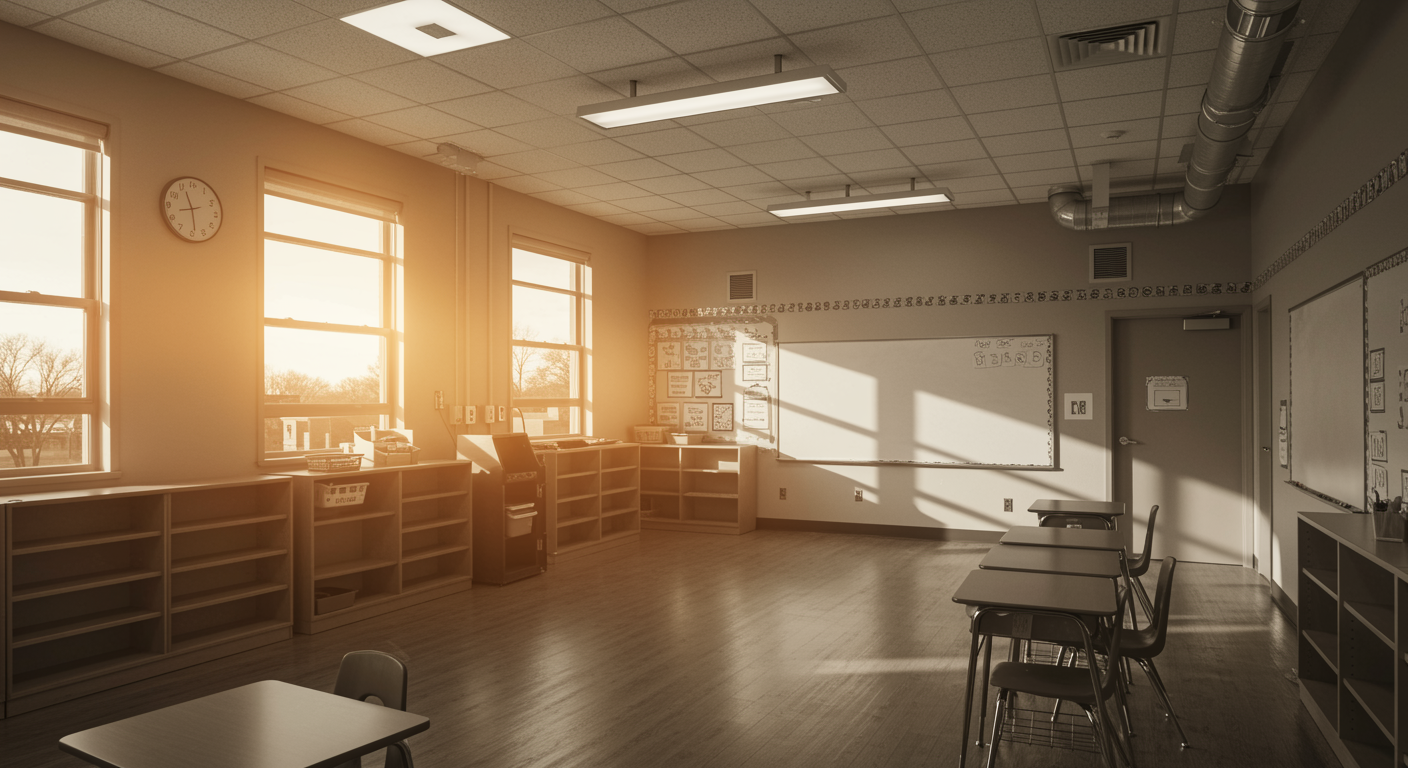Why Mold Prevention in Schools Is More Important Than Ever?
When students spend several hours a day in classrooms, air quality and structural safety become critical concerns. Mold doesn’t just affect buildings—it directly impacts student health, attendance, and academic performance. In Monmouth County, where humidity levels can rise quickly, especially during the spring and summer, schools are particularly vulnerable to fungal growth in basements, ceilings, and HVAC systems.
Asthma and allergy symptoms are commonly aggravated by indoor mold. For children with respiratory issues, exposure to mold can lead to more severe and frequent health problems. This makes mold prevention in schools a public health necessity—not just a maintenance task.
What Causes Mold to Develop in School Buildings?
Understanding the source of mold is the first step toward prevention. Common causes of mold growth in Monmouth County schools include:
- High indoor humidity, especially in poorly ventilated classrooms
- Leaks in roofs, windows, and plumbing systems
- Flooding in basements or crawl spaces
- Improper HVAC system maintenance
- Neglected water damage or slow cleanup after storms
Even minor leaks—if left unnoticed—can lead to mold infestations in ceiling tiles, insulation, and drywall. Regular inspections and immediate response to moisture issues are essential.
Best Practices for Keeping Mold Out of School Facilities
To protect your educational environment, adopt a comprehensive mold prevention plan that includes the following steps:
- Maintain humidity levels below 60% using dehumidifiers or upgraded HVAC systems
- Inspect and clean HVAC units regularly to prevent mold from circulating through air vents
- Train custodial staff to recognize and report signs of mold early
- Use mold-resistant materials during renovation or new construction projects
- Ensure proper drainage around the building foundation to avoid water pooling
These practices are especially important in Monmouth County’s older school buildings, which may lack modern ventilation or moisture barriers.
When Should Schools Call in Professional Mold Remediation Services?
While minor mold can sometimes be cleaned in-house, any large-scale or recurring problem should be addressed by certified mold remediation professionals. Warning signs that indicate the need for expert help include:
- Persistent musty odors despite cleaning
- Visible mold patches on ceilings or walls
- Increased student health complaints, especially related to breathing issues
- Water damage that has gone untreated for more than 24-48 hours
If any of these are occurring in your facility, don’t delay—mold spreads quickly, especially in high-moisture regions like Monmouth County.
How Advanced Disaster Recovery Inc. Supports Mold-Free School Environments?
At Advanced Disaster Recovery Inc., we offer specialized services to help school districts meet safety and compliance standards. Our mold remediation services for schools include:
- Thorough mold inspection and air quality testing
- Containment of affected areas to prevent spread
- HEPA vacuuming and filtration systems
- Complete removal of contaminated materials
- Moisture control recommendations and post-remediation verification
Our technicians are trained to work in educational environments, respecting safety, discretion, and scheduling needs. We coordinate with school officials to perform services after hours, on weekends, or during breaks to avoid disruption to student learning.
Don’t Have Time or Staff for Full Mold Prevention Protocols?
We understand that many Monmouth County schools are stretched thin with limited maintenance resources. If your staff is overwhelmed, or you simply don’t have time to implement all these preventive steps, let us handle it for you. Our expert team works efficiently to diagnose, treat, and prevent mold so your school community stays safe and compliant.
We’ll help create a plan customized for your facilities—whether that’s regular inspections, emergency remediation, or a one-time mold cleanup. Don’t wait until mold becomes a crisis.
Protecting Students Means Acting Early Against Mold
Every day a student spends in a mold-contaminated building can affect their health and ability to learn. Schools must take proactive measures to monitor and control mold risks throughout the year. With the support of Advanced Disaster Recovery Inc., your district can rest assured that expert help is always just a call away.
Let’s keep our schools clean, safe, and mold-free—together.

